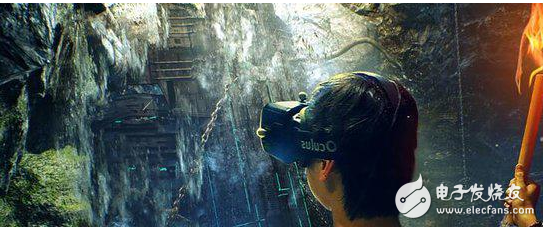Today's hotel and tourism industry is at a critical crossroads of technological innovation. The choice to invest in virtual reality (VR) or augmented reality (AR) technology to provide passenger simulation or immersive experience has become one of the key topics for the future of the hotel and tourism service industry. According to reports, although VR and AR have many things in common, if they choose to invest in development, they may still lead to completely different development directions and results. In theory, both VR and AR have their own unique application and effects; however, the latter has now proven to be an option that is more conducive to the travel industry and the visitor experience. Technically speaking, AR is a synthetic computer simulation reality, or an instant environment entertainment effect, allowing users to interact with the sophisticated simulation environment copied by the computer; however, the effect transmitted by VR is a kind of body. The experience of the environment. The use of VR technology can help potential customers or groups of consumers to visually understand the look and environment of a restaurant or attraction and experience it. For example, when selling large spaces such as conference halls, weddings, and large group bookings, VR can be used for pre-planning management and preview of results. However, research shows that AR technology can bring more impressive impressions to passengers. There are already many app developers in the hospitality and tourism industries that have been working to apply AR technology to their platforms in order to amplify and enhance the experience of visitors or consumers through innovative technologies, such as those delivered through mobile solutions. Data to stimulate business travel, making it more efficient or productive. AR technology is also suitable for helping the education sector and the tourism industry become more interesting. For example, if applied to the tourism industry, AR will help to show the right path and direction for passengers, translate road signs, provide detailed information about sightseeing at a specific location, help visitors track and guide the location, and serve App Users provide a new cultural experience and more. It is undeniable that for the tourism industry, there are indeed some unavoidable challenges in developing AR technology. One of the biggest challenges is the cost of developing content. Alex Bainbridge, founder of DesTInaTIonCTO, has bluntly said that the cost of creating high-quality VR/AR content is extremely expensive. Therefore, he hopes that independent tourism suppliers or hoteliers can also participate in the development. Although VR/AR has become a hot topic in recent years, in the next few years, this category of applications, innovation and revenue will continue to create an explosive growth trend. The scope of application of the tourism industry is only related to the surface of the VR/AR technology field; and if you want to create a better VR or AR experience, there are still many basic work that must be taken rooted. Although these challenges are not insurmountable, in order to be more successful in developing relevant products and meaningful content, companies that delve into this field will still need to keep an eye on the emerging expectations of today's travelers and consumers, and they must fully understand The technical and human engineering needs required to deliver more value and greater scale. China Electric Car Charger,Electric Vehicle Charging Stations,Electric Car Charging Stations,Floor Mounted Ac Ev Charger, we offered that you can trust. Welcome to do business with us. Electric Car Charger,Electric Vehicle Charging Stations,Electric Car Charging Stations,Floor Mounted Ac Ev Charger Shenzhen Hongjiali New Energy Co., Ltd. , https://www.hjlcharger.com